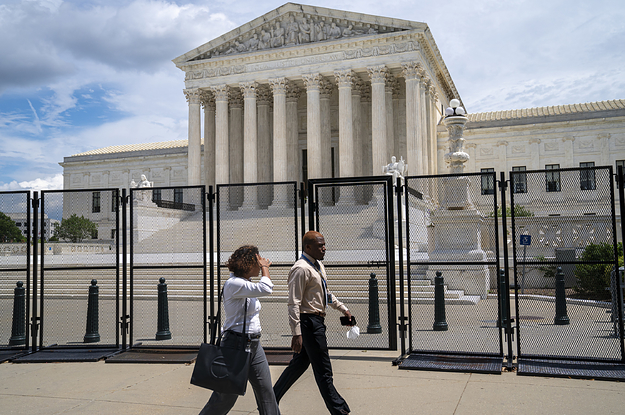Last year’s leak of a draft opinion overturning abortion rights nationwide by the US Supreme Court remains unsolved, according to a report released by the court’s Office of the Marshal. The leak, which occurred in May 2023, came before the court released its final opinion on Roe v. Wade. The Supreme Court described the leak as a “grave assault on the judicial process” and emphasized the need for secrecy during deliberations. Despite conducting 126 interviews with 97 employees and analyzing computer and printer records, investigators were unable to identify the source of the leak.
Chief Justice John Roberts ordered the marshal’s office to investigate the matter immediately after the leak occurred. However, the investigation yielded no results. Investigators stated that there was no confession or forensic evidence to identify the individual responsible for leaking the document to Politico. Digital analysis suggested that the court’s systems were unlikely to have been hacked by an external actor. The possibility that the draft opinion was inadvertently or negligently disclosed, such as being left in a public space, was also considered.
In addition to the court’s nine justices, 82 employees had access to either electronic or hard copies of the draft opinion. The investigation focused on court personnel, including temporary law clerks and permanent employees, who had or may have had access to the document. The report did not specify whether the justices themselves were included in the investigation. Employees were asked to turn over their private cellphones for review, and affidavits were signed to declare their innocence. Some employees admitted to sharing information about the draft opinion with their spouses.
While some electronic data still needs to be reviewed and some lines of inquiry remain open, the court is primarily concerned with preventing future leaks. To enhance security, the marshal has proposed reforms that would limit the number of employees with access to sensitive documents. The court’s focus on preventing leaks comes after a report in November by the New York Times, which stated that former anti-abortion leader Rev. Rob Schenck had been informed of the outcome of a 2014 case on contraception and religious rights prior to its announcement. This case also involved a majority opinion authored by Justice Samuel Alito, who denied disclosing the opinion.
In conclusion, the investigation into the leak of the draft opinion overturning abortion rights by the US Supreme Court remains unresolved. Despite conducting numerous interviews and analyzing computer records, investigators were unable to identify the source of the leak. The court expressed its concern over the breach of trust and emphasized the need for secrecy during deliberations. The marshal’s office has proposed security reforms to prevent future leaks, including limiting access to sensitive documents. The court’s focus on preventing leaks comes after allegations of a similar incident involving Justice Alito in a 2014 case.









